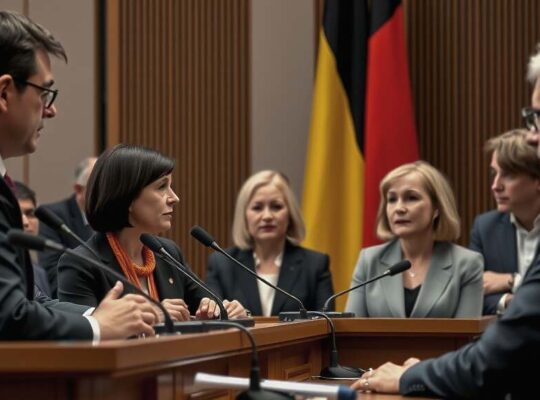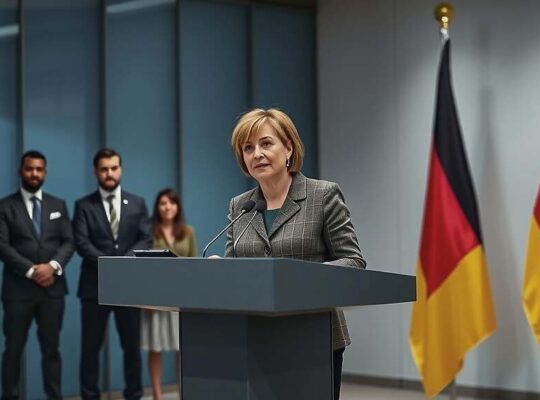The Social Democratic Party (SPD) faction has strongly rejected proposals from Federal Minister for Economic Affairs, Katarina Reiche (CDU), advocating for an extension of working lives.
SPD parliamentary group vice chair, Dagmar Schmidt, criticized the proposals, stating that they appeared detached from the realities faced by most Germans. She highlighted the fact that many individuals already find it financially beneficial to continue working beyond the statutory retirement age and emphasized the need to protect those unable to do so, asserting that any further extension would effectively constitute a reduction in their pensions – a measure the SPD is firmly opposed to.
Minister Reiche had previously argued that extending working lives in Germany was “unavoidable” citing concerns that German workers put in fewer annual hours compared to their counterparts in other nations.
Schmidt countered this argument, accusing Reiche of using misleading statistics regarding working hours in Germany. She pointed out that the overall economic volume of work has significantly increased since the mid-2000s, driven in part by a rise in part-time employment, particularly among women. She suggested that a scenario wherein all part-time workers ceased working would dramatically increase the average workload and questioned whether that outcome was truly desired by members of the CDU. Schmidt also noted that nearly half of German workers regularly exceed their contracted hours, seeing this as an indicator of employee dedication and effort.
Regarding the argument that increasing working lives is necessary due to increased life expectancy, Schmidt dismissed the proposition as overly simplistic. She argued that increased longevity disproportionately benefits individuals with higher incomes and that extending working lives would consequently impact those least able to afford it.
The Federation of Medium-Sized Businesses (BVMW) responded cautiously to Minister Reiche’s proposals. While acknowledging the need for Germany to enhance its economic performance, BVMW federal managing director, Christoph Ahlhaus, emphasized alternative solutions. He advocated for reductions in corporate taxes and social security contributions, along with the elimination of superfluous bureaucracy, contending that these measures would be more beneficial to the German economy than a protracted political dispute over extended working lives. Ahlhaus stressed the importance of enabling businesses to invest in productivity.












